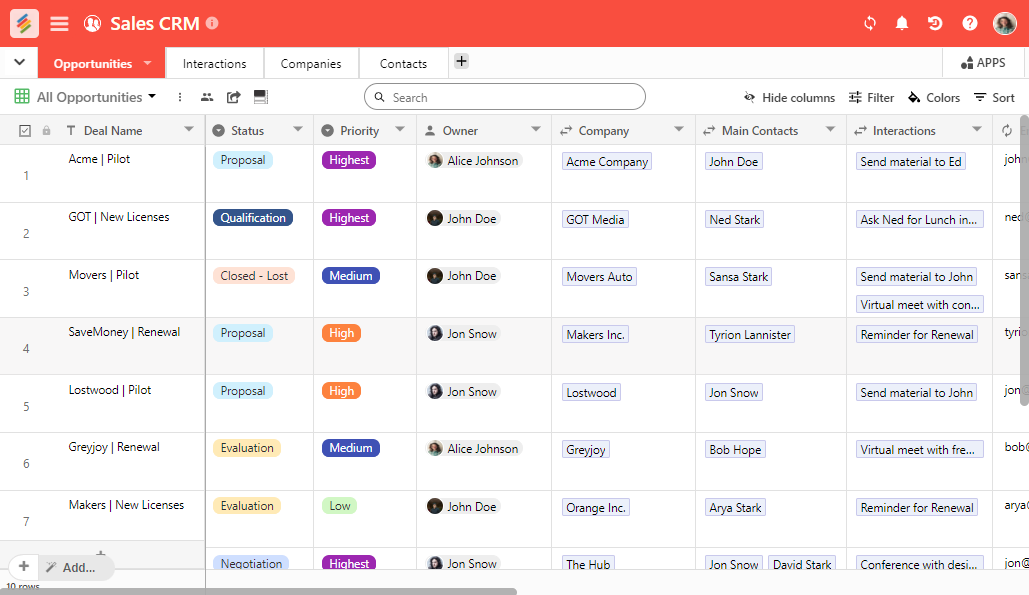Within the current rapidly evolving corporate landscape, fostering robust customer relationships is more vital than ever. Companies are progressively realizing that achievement depends not just on making a sale, but also on building relationships that last. Zoho CRM has emerged as a valuable tool in this aspect, allowing businesses to convert one-time transactions into enduring partnerships.
By utilizing crm software, companies can gain precious insights into customer preferences and behaviors, tailoring their approaches to satisfy individual requirements. This not just enhances customer satisfaction but also drives loyalty, turning clients into advocates for the brand. As businesses move through an era marked by heightened competition and changing consumer demands, the adoption of efficient crm solutions is becoming a key element of a successful strategy.
Understanding Customer Relationship Management Systems

CRM software, frequently known as CRM software, acts as a formidable tool developed to help businesses oversee engagements with present and future customers. By aggregating customer information, CRM software allows businesses to enhance operations, enhance communication, and nurture meaningful interactions. This tool plays a crucial role in tracking customer tastes, behaviors, and past interactions, enabling businesses to customize their offerings accordingly.
The essential capabilities of CRM software comprises contact management, automated sales, and customer support. It provides a system in which every client interaction is recorded and assessed, helping employees to understand their customers better. Automation features also allow businesses to streamline routine tasks, liberating important time for salespeople and support staff to concentrate on building relationships rather than getting bogged down in routine paperwork.
Moreover, CRM software facilitates collaboration across teams. With joint access to customer data, groups can coordinate more effectively, ensuring that all members is in sync. This unified method cultivates a customer-centric culture, where understandings and input result in improved customer service and engagement. Embracing CRM software finally transforms how businesses engage with their clients, supporting the goal of turning single transactions into lasting connections.
Benefits of CRM in Relationship Building
One major advantages of CRM systems is the ability to organize customer details. This unified set of information allows businesses to have a comprehensive view of their customers, encompassing their likes, purchase history, and communications with the company. By having all this information readily accessible, teams can customize their messages and products to meet specific customer needs, encouraging a closer connection. This tailored approach helps build trust and commitment, transforming one-time buyers into loyal customers.
A further notable benefit of CRM solutions is the improvement of messaging efficiency. With built-in communication tools, businesses can optimize their engagements across diverse channels, providing coherent messaging and quick responses. This efficiency both improves the overall customer journey but also shows customers that their needs are a concern. When customers feel recognized and listened to, they are more inclined to return, creating a deeper relationship over time.
Finally, CRM systems often include analytical tools and reporting capabilities that provide understanding into customer activity and relationship trends. By reviewing this data, businesses can discover opportunities for enhanced engagement, such as focused promotions or tailored follow-ups. Grasping customer behavior enables companies to ethically address issues and adapt strategies to meet evolving expectations, reinforcing relationships. In the end, these insights drive long-term success by converting transactions into lasting partnerships.
Implementing CRM for Success
To successfully deploy CRM software, organizations must start by setting specific goals and objectives. This involves grasping what they aspire to achieve through the CRM system, such as enhancing customer service, amplifying sales, or enhancing marketing efficiency. Defining quantifiable goals will guide the deployment process and ensure that the selected system matches with the business's overall vision.
Education and user adoption are key for CRM success. It is essential to motivate staff at all levels and provide appropriate training on how to use the software effectively. Encouraging employees to leverage the Customer Relationship Management's features will boost user engagement and maximize productivity. Moreover, ongoing support and resources ensure that users feel assured in utilizing the system, which can lead to more accurate data entry and a more complete understanding of customer interactions.
In conclusion, continuous evaluation and optimization of the Customer Relationship Management system are vital. Organizations should track key performance indicators to assess whether the CRM software is meeting its objectives. Periodically seeking feedback from users helps recognize areas for improvement and facilitates for adjustments to be made in response to shifting business needs. By devoting to this cycle of evaluation and refinement, businesses can optimize their CRM investment and cultivate lasting relationships with their customers.
